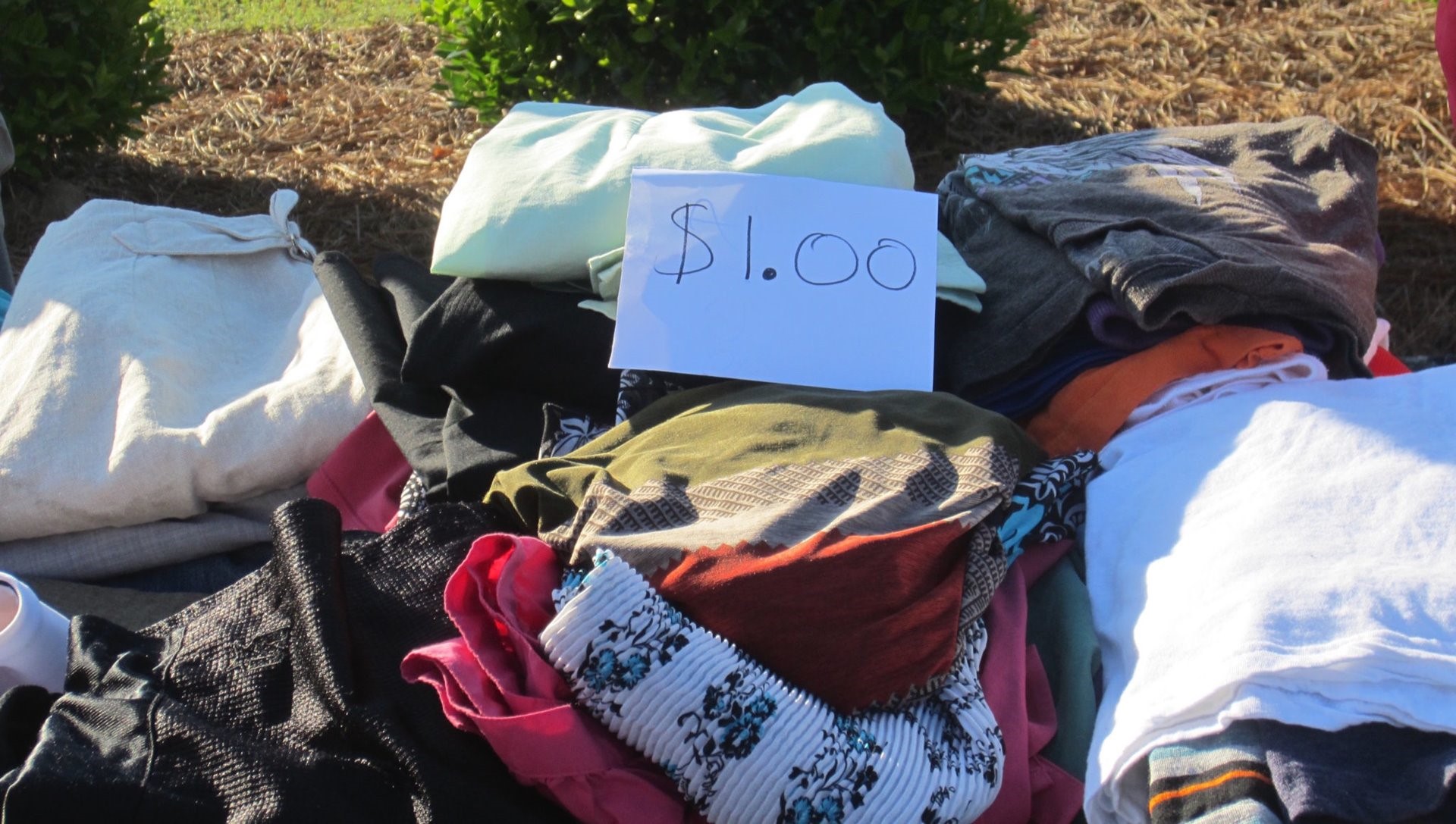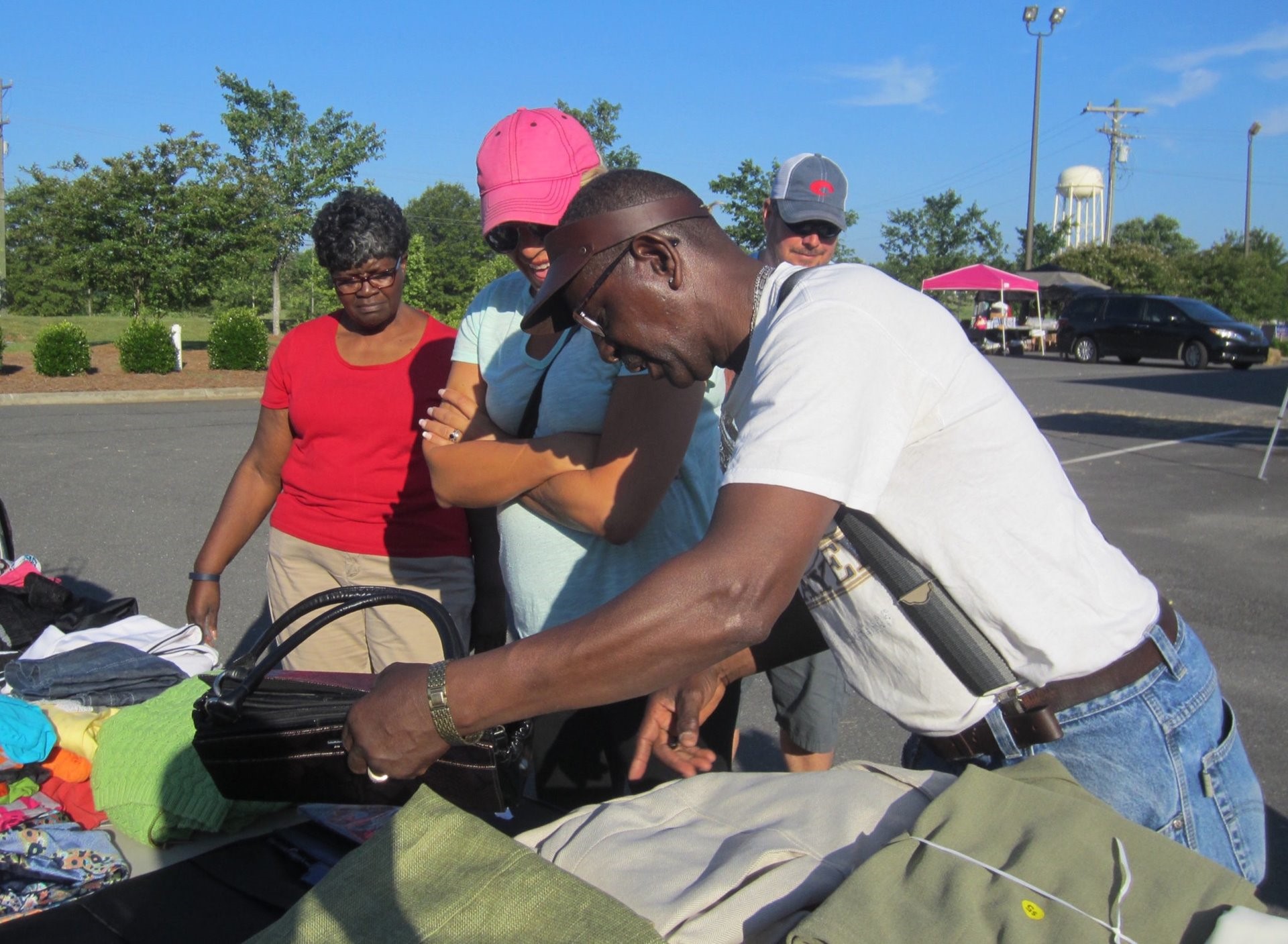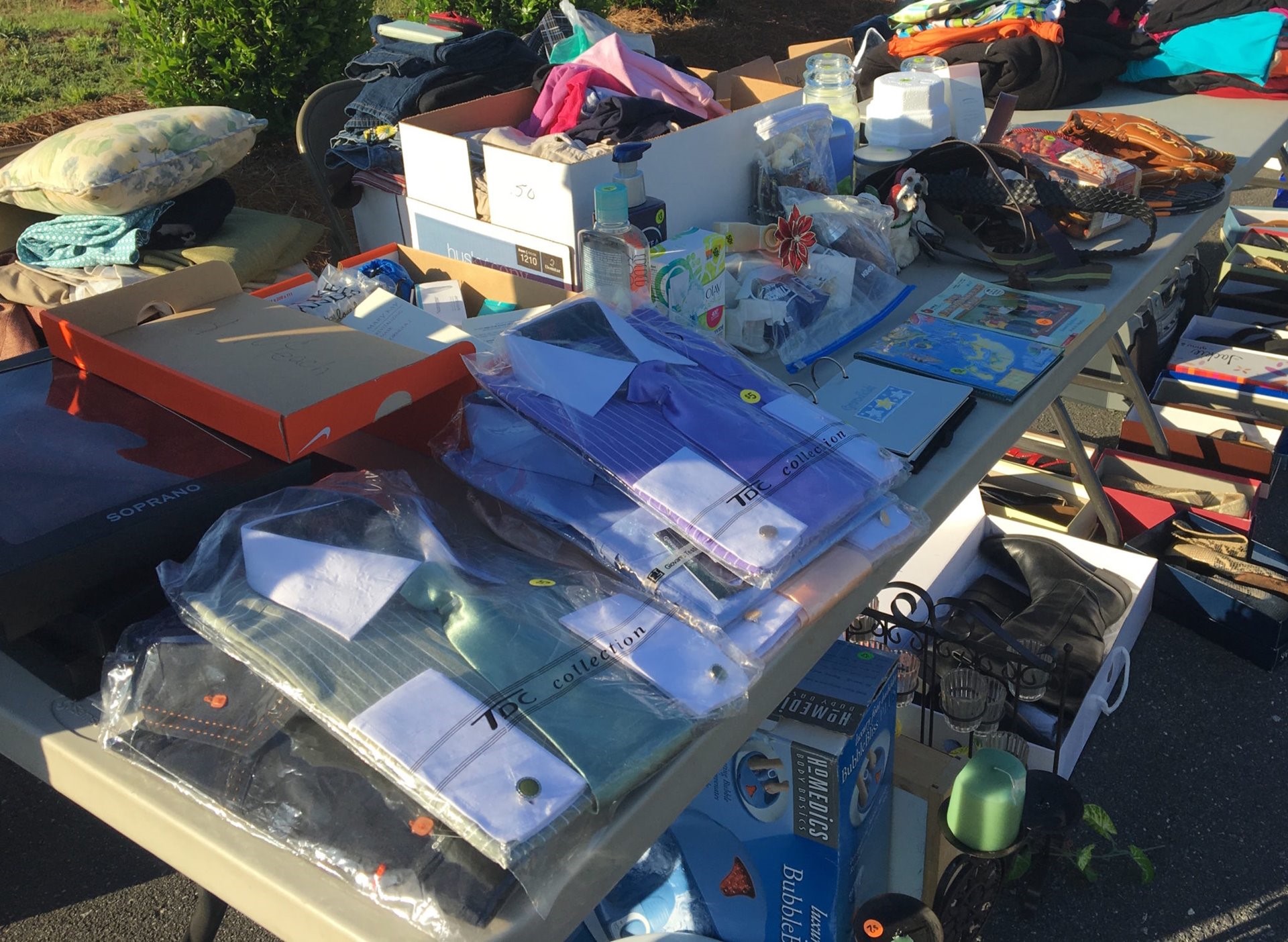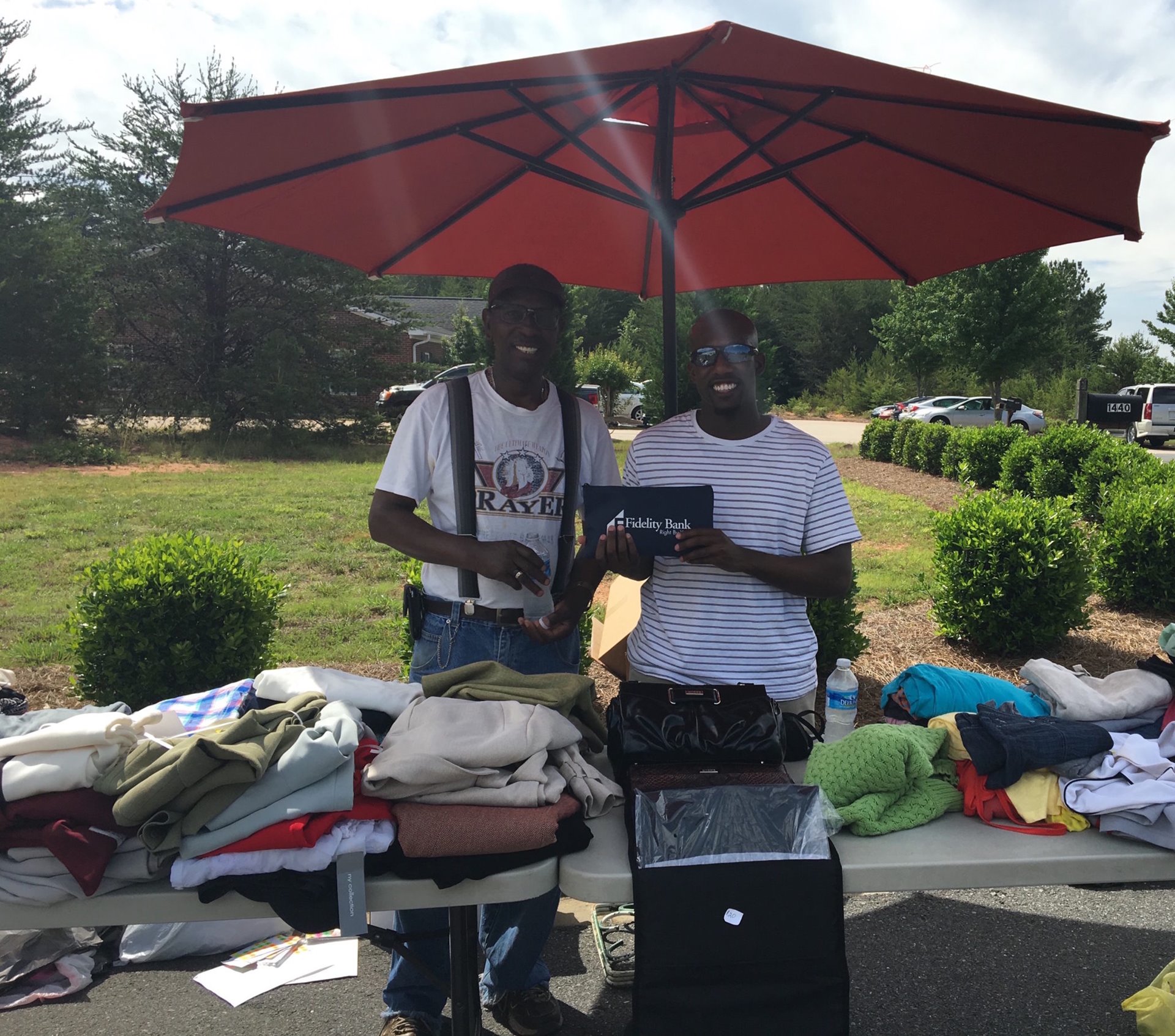Cash in your junk: 10 ways to have the best yard sale ever
Whether you're clearing out the clutter before you put your house on the market, or you just need more space in your home, make yourself some money and host a yard sale.
Of course, unlike donating everything to the nearest thrift store, there's more to do than just tossing your stuff stuff out the door. Here's what you need to know if you want to become a yard sale champion:
1. Schedule like a boss
The first step is deciding on the time, date and place for your sale. What time you begin can also vary by region, but most start between 7 and 9 a.m.
"Some areas have Friday and Saturday sales; some are just known for Saturday yard sales," says Chris Heiska, the so-called "Yard Sale Queen" who, since 1996, has managed a website of yard sale tips and tricks. "It's good to know what's typical in your area."
If you have a lot to sell, consider hosting a two-day sale. If you only have a few items or need a more desirable location, hold a multi-family sale with family or friends, says Bruce Littlefield, a lifestyle expert, TV personality and author of "Garage Sale America."
10 Things One Dad Learned From Surviving a Yard Sale https://t.co/nwdy5PilCQ
— networkdads (@networkdads) May 4, 2016
2. Location, location, location
The same golden rule or homebuying applies in yard selling.
Pick a spot that's visible from the street and provides plenty of parking. Avoid drawing customers to super long driveways that would require lots of walking.
"You want to be accessible," Heiska says.
3. Advertise everywhere
Check your city and county ordinances on the do's and dont's of signage.
Then, invest in freestanding signs that you don't have to nail into a telephone pole or tree. It's less work for you and avoids causing damage. Your signs don't need to be fancy but they need to include the date of the sale, your address and an arrow pointing shoppers to your home.
Most Honest Yard Sale Sign https://t.co/sO1F9EvKdbpic.twitter.com/Yv3hYhfy8O
— JPEGY (@Jpegydotcom) April 22, 2016
But signs are just one piece of your overall marketing strategy.
Advertise on Facebook groups, Craigslist, neighborhood bulletin boards and word-of-mouth.
Whatever kind of advertising you choose, throw in key words — "mid-century modern," "kids' toys," "grandma's heirlooms" or "1940s furniture set" — that will lure connoisseurs of all kinds, says Littlefield, the author.
4. Don't be greedy

You may think your prized 20th anniversary "Footloose" DVD is worth the $20 you paid for it in 2004, but it's not. On some sites, it's valued at less than $3.
Remember, this is a yard sale: People want deals, which means cheap.
If you're unsure, go to a few other yard sales or hit up the thrift store to see what items cost. Or, turn to eBay, where you can put the product in the "sold items" search to see how much other people paid for it, Littlefield says.
The rule of thumb, he says, is to sell your stuff for 10 to 25 cents on the dollar on the original price "unless it's something that has grown in value over time, like sterling silver."
Consider setting up a table packed with a smorgasbord of merchandise that just cost $1 to grab shoppers, especially for items like books, DVDs or CDs (yes, people still do listen to CDs).
Pro Tip: Use blue painter's tape for your price tags. It peels off easily and doesn't scuff the merchandise.
5. Handle early birds & hagglers with care

Every yard sale has them: Those intrepid early-birds who show up as soon as your folding tables hit the grass.
"If someone's there at the crack of dawn…and they want to haggle first thing in the morning, you know they're a dealer," Heiska says.
Consider roping off your sale so you can keep people at bay until you're ready to get started, Littlefield says. Don't compromise too early. If you're tangling with a haggler demanding a lower price for an item, tell them you'll give them a discount if it doesn't sell by sale's end, Littlefield says.
"Almost nine times out of 10, they'll go ahead and pay your price because they don't want to come back and they don't like the idea of somebody else getting it," he says.
6. Treat it like a store, not your closet

No one wants to dig through a pile of clothes you toss on a table. Set up your sale like a miniature department store, with housewares in one section and sporting goods in another.
A visually dazzling presentation might draw some visitors to your yard, even if they weren't planning to stop. Make your inventory look full and only sell things in good condition.
7. Keep your money in hand

If you want to keep your money, keep it on you by wearing a carpenter's apron or fanny pack, Heiska suggests.
"I cringe when I see people having a box full of cash," she says. "All it takes is a van-load of six people to jump out and distract you, and then they're off." With your money.
Littlefield adds that sellers should only accept cash or possibly PayPal for big items (sorry, no plastic or bitcoin allowed).
8. Safeguard your home
A yard sale is not a family reunion or cookout. You're inviting strangers onto your property so they can buy things and leave. That means you shouldn't let them in your house (where you keep the real valuables), even if they ask to use the restroom.
So what can you say to someone whose bladder is poised to burst? Point them to a restroom nearby, like at a gas station.
9. The aftermath
If your sale is over but you still have stuff left, donate it to charity. "Don't drag the things you haven't sold back into your house," Littlefield says.
Some charities will even pick up your donations if you schedule it in advance.
10. Don't sell these things
Now that you have the basics on how to get your sale started, here's a primer on what you absolutely should not sell:
- Recalled items: Selling recalled products is illegal, according to the federal Consumer Product Safety Commission. Find a list of recent recalls here.
- Used personal hygienic items: No one wants your open bottles of lotion, dental floss or contact lens solution.
- Alcohol: You want to get rid of your booze give it to your friends, Heiska says, and not to your shoppers.
- Something that's not yours: Before you put grandma's ornate china or carved wooden bench on the table, ask her if she wants to sell it.
- Underwear: Just don't.


